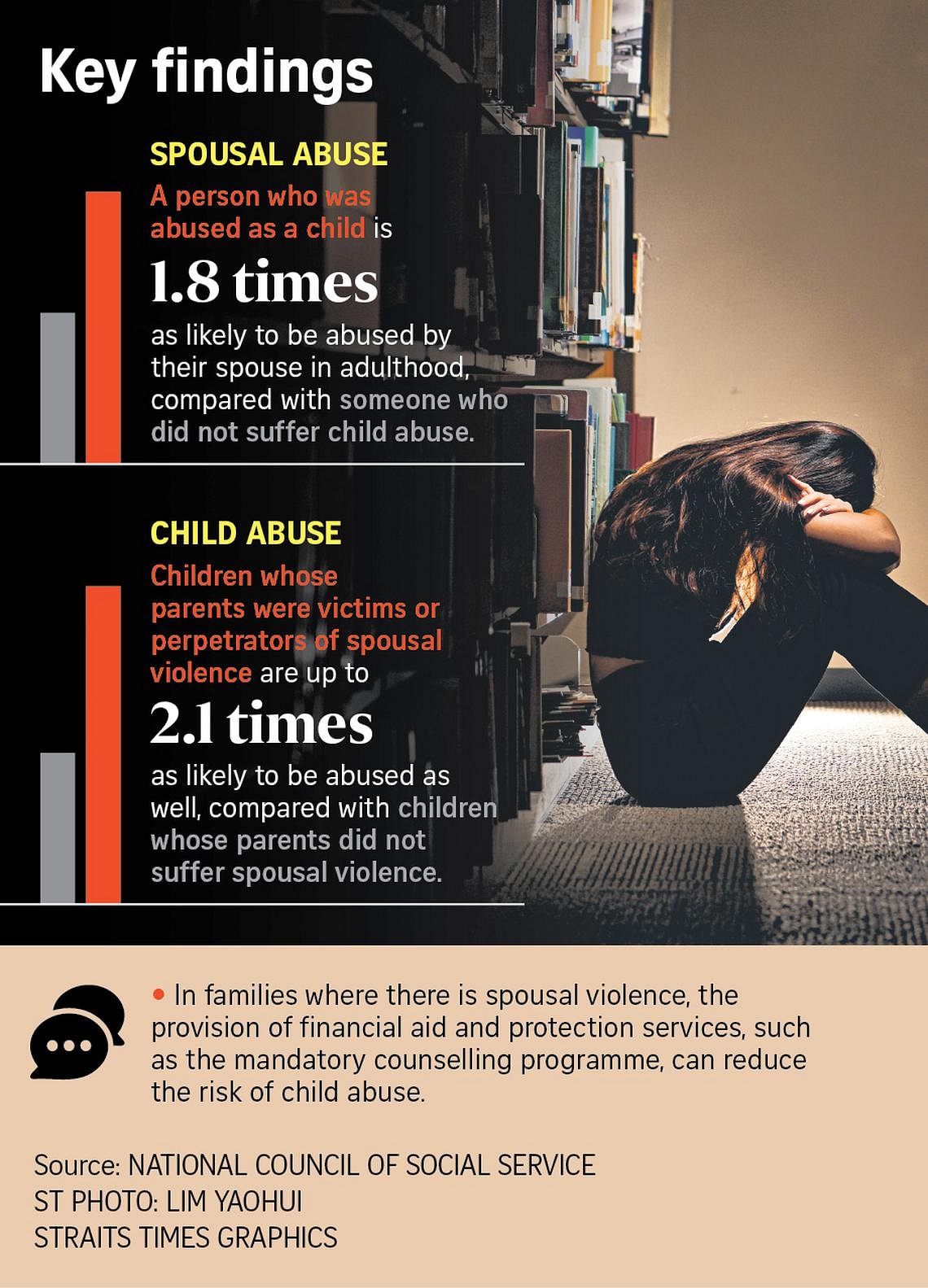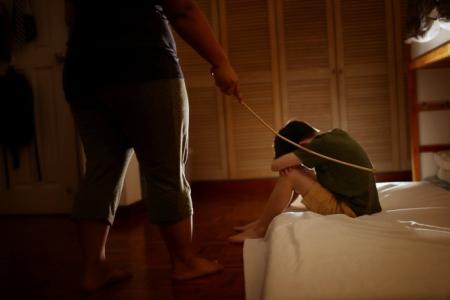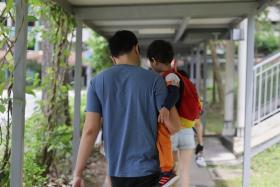Child abuse victims more prone to being abused by spouses later in life
A new study on domestic violence has found that those who were abused as a child have a significantly higher risk of being abused by their spouse in adulthood.
The National Council of Social Service (NCSS), which did the study, said the findings highlight the influence of early traumatic experiences, and the need for early intervention to break the cycle of abuse, said its director of translational research Eric Hoo.
Understanding how patterns of behaviour tend to be repeated across generations within families is crucial in addressing the root causes of domestic abuse and intervening to prevent such violence, Dr Hoo told The Straits Times.
The study analysed administrative data, such as Government records and of social services delivered, of about 200,000 Singapore residents. Individuals were not identified from the data analysed.
Results from the study, which is part of an ongoing research programme, were presented at the Asian Family Conference in November 2024.
Its key findings are:
- A person who was abused as a child is 1.8 times as likely to be abused by their spouse in adulthood, compared to someone who did not suffer child abuse.
- Children whose parents were victims or perpetrators of spousal violence are up to 2.1 times as likely to be abused as well, compared to children whose parents did not suffer spousal violence.
- In families where there is spousal violence, the provision of financial aid and protection services, such as the mandatory counselling programme (MCP), can reduce the risk of child abuse. The MCP, which is administered by the Ministry of Social and Family Development (MSF), and other protection services give families skills and support to resolve conflicts in a respectful and non-violent manner, Dr Hoo said.
He said one reason why those abused as children are more likely to be abused by their spouses in adulthood can be explained by a framework known as attachment theory.
The widely studied theory of human bonding says that a child’s cognitive, social and emotional development are influenced by their relationships with caregivers like parents. And disruptions in these early relationships could lead to vulnerabilities in relationships they form later in life.
For example, an abused child may develop insecure attachment styles as their parent becomes a source of harm or fear, instead of someone who provides emotional support and safety. This can affect the child’s understanding of boundaries, trust and how to resolve conflicts.
As a result, they may later find it hard to recognise unhealthy relationship patterns or even tolerate abuse.
Dr Hoo said these factors increase the likelihood of being in an abusive relationship, perpetuating the cycle of violence across generations.
Care Corner Singapore deputy director of family and community services Martin Chok said that it has come across adults who stay in abusive relationships as they feel they “don’t deserve better”, or think that nobody except their abusive spouse would love them.
Some also fear losing the relationship if they report their abuser.
Mr Chok also noted that children who experience violence at home may learn from and behave in the same way as their abusive parent when they grow up.
He said: “To them, violence could be a normal way of coping with conflict. Or they become de-sensitised towards violence, and they don’t think that violence is wrong.”
Ms Jasmine Lee, associate lead social worker at Montfort Care Child Protection, offered some reasons why children whose parents have experienced spousal violence are more likely to be abused as well.
A child could get injured while trying to stop his parents from fighting or the abusive parent may hit or threaten to hit the child to get the other parent to do his bidding, she said.

Mr Chok added that some parents cannot cope with multiple stresses and take it out on their loved ones, such as spouses and children.
He said the NCSS study’s findings shows the critical need to help children overcome the trauma of abuse to break the cycle of violence.
Dr Hoo said that study’s insights will inform the MSF’s and the NCSS’ design of its services and programmes.
The study comes in the wake of a growing number of spousal violence and less severe child abuse cases.
In 2023, there were 2,008 new spousal violence cases, up from 1,741 in 2022, said the MSF’s Domestic Violence Trends Report released in September 2024.
The ministry attributed the growing number of cases to greater awareness and reporting of family violence, coupled with better detection of such violence.
Get The New Paper on your phone with the free TNP app. Download from the Apple App Store or Google Play Store now


